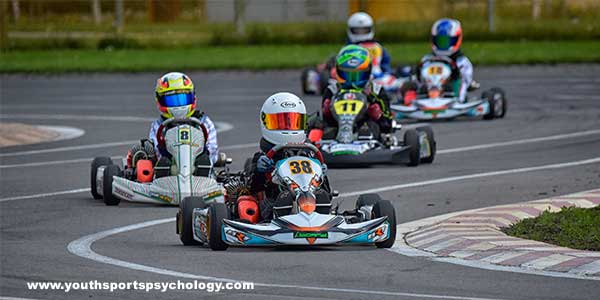
Finding Flow in Sports
Brooks Elms, a youth sports coach and former Division 3 player for NYU, says that as a young athlete, he was very anxious and too focused on winning.
He brings that background to his coaching, helping kids cope with butterflies and focus on what’s most important.
In a recent interview, he described being a sports kid whose identity was wrapped up in being successful. He often felt very anxious, and stopped wrestling due to anxiety, but continued playing team sports.
Now, as a youth sports coach, he’s quick to tell kids about his own mental game challenges as a kid. He tells them how he learned to cope with those feelings as he got older.
“As I went past my peak athletically and slowed down, I started getting some of those inner tools; how to stay calm, stay focused. I started thinking about how much should winning matter? And now I try to bring those questions back to the kids. The focus should be playing our best and focusing in as a team. Winning ultimately isn’t a great measurement,” he said.
Now, when he’s coaching, he asks his team members to check in with their feelings before games.
“I try to get them connected to inward connections. I ask if they have butterflies, I tell them about my butterflies. Then we acknowledge the butterflies and move past them. I want to help with that awareness and let them know it’s okay to feel scared or nervous.”
He encourages them to get in their bodies and play more instinctively, to focus on the here-and-now.
“Ideally, the more we think about the task at hand, the better. We should think about our feelings when they come up, and acknowledge them and then move back to the task at hand. If you don’t take that time to work on the feelings when they come up in kids, you won’t be able to move back to the task at hand as much,” said Elms.
One technique for helping kids manage the anxiety of penalty kicks is to have them chant. When Elms works with middle schoolers, he tells them to chant:
“It’s awesome when I score, it’s okay when I mess up and it’s awesome when I score.” The goal is to help get their minds ready to be excited to score but ready to miss the shot if it happens, he said.
Here at Youth Sports Psychology and Kids’ Sports Psychology, we agree that it’s important to help kids focus on the task at hand and move quickly past mistakes. And as Elms said, winning should not be the primary goal.
“It’s not about winning, it’s about being fully engaged in the game. We can focus on full engagement, teamwork, anything in our control. Winning is almost never directly in our control,” said Elms, who is a filmmaker and consultant who many years ago produced a film about a college soccer team. His Twitter account is here: Brooks Elms
When athletes can find the flow in sports, this is a reward for them. They enjoy being fully immersed into what they are doing.
Listen to the full Interview:
Related Articles on Kids’ Mental Game:
- How This Sport Builds Confidence and Focus in Kids
- How Nutrition Affects Sports Kids’ Focus and Performance
- Tips for Sports Kids With Focusing Challenges like ADHD
*Subscribe to The Sports Psychology Podcast on iTunes
*Subscribe to The Sports Psychology Podcast on Spotify
Improve Your Mental Game From Anywhere In The World

We’re certain that, as a parent, you want to help your child develop confidence and discipline in sports and life. And as a sports parent, you’d love for your children to reach their potential in sports. But encouraging your child to strive for greatness without pressuring them can be a challenge.
You can get expert mental coaching with us from anywhere. Meet with us via Zoom, Skype, FaceTime or phone call. With today’s video technology, we are able to connect with athletes and coaches all over the globe.
Call Us Today to Schedule Your Free 15-Minute Session.
Find Out How Your Athlete Can Benefit From One-on-One Mental Coaching!
